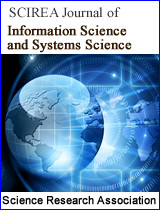Quantum Qubit Information Conspiracy
DOI: 10.54647/isss12076 71 Downloads 14663 Views
Author(s)
Abstract
In this article I will show quantum qubit information transmission is as elusive as Schrodinger ‘s cat. Since there are two types of information transmission; namely Wiener and Shannon, I will start from mutual information to show that quantum qubit information-transmission is virtual as mathematics is, which is not existed within our temporal (t > 0) universe. Since quantum information transmission depends on Schrödinger’s principle of superposition, which was derived based Schrödinger’s equation. From which we see that Schrödinger’s equation is a time independent formula only exists within an empty timeless (t = 0) space. From this I will show quantum qubit information is a noiseless channel which does not exist within our universe. Since quantum information is relied on Schrödinger’s timeless fundamental principle, I shall show that qubit information is timeless (t = 0) and fictious. In order to further illustrate what empty space paradigm has done to superposition, I will demonstrate what empty space can do to qubit information. Since physically realizable science depends on nature of our temporal (t > 0) universe, from which I will show where Schrödinger’s quantum machine and his fundamental principle is situated. Since qubit information has emerged as a worldwide quantum conspiracy, it is hard to predict when this conspiracy will end. Since I am a scientist, I wish this qubit conspiracy will be ended soon, since science is supposed to be physically realizable.
Keywords
Qubit information, Quantum information, Superposition principle, Quantum mechanics, Timeless space, Temporal space, Schrödinger equation, Quantum conspiracy.
Cite this paper
Francis T. S. Yu,
Quantum Qubit Information Conspiracy
, SCIREA Journal of Information Science and Systems Science.
Volume 5, Issue 5, October 2021 | PP. 80-94.
10.54647/isss12076
References
| [ 1 ] | F. T. S. Yu, Optics and Information Theory, Wiley -Interscience, New York, 1976. |
| [ 2 ] | N. Wiener, Cybernetics, MIT Press, Cambridge, MA, 1948. |
| [ 3 ] | N. Wiener, Extrapolation, Interpolation, and Smoothing of Stationary Time Series, MIT Press, Cambridge, MA, 1949. |
| [ 4 ] | C. E. Shannon and W. Weaver, The Mathematical Theory of Communication, University of Illinois Press, Urbana, IL, 1949. |
| [ 5 ] | D. Gabor, “Communication Theory and Physics,” Phil. Mag, vol. 41, no. 7, 1161, 1950. |
| [ 6 ] | W. Heisenberg, “Über den anschaulichen Inhalt der quantentheoretischen Kinematik und Mechanik,” Zeitschrift Für Physik, vol. 43, no. 3–4, 172 (1927) |
| [ 7 ] | F. T. S. Yu, “Nature of Temporal (t > 0) Quantum Theory: Part II” Quantum Mechanics, Edited by P. Bracken, Chapter 9, p 161-188, IntechOpen, London (2020). |
| [ 8 ] | C. H. Bennett, Quantum information and computation. Phys. Today, Vol.48, No.10, 24–30, 1995. |
| [ 9 ] | K. Życzkowski,, P. Horodecki, M. Horodecki, and R. Horodecki, ”Dynamics of quantum entanglement”. Phys. Rev. A 65, 1-10, 2001. |
| [ 10 ] | A. Einstein, B. Podolsky, and N. Rosen, “Can Quantum-Mechanics Description of Physical Reality Be Considered Complete?” Phys. Rev. Vol. 47, No. 10, 777-780, 1935. |
| [ 11 ] | F.T.S. Yu, “Time: The Enigma of Space”, Asian Journal of Physics, Vol. 26, No.3, 143-158, 2017. |
| [ 12 ] | F.T.S. Yu, “From Relativity to Discovery of Temporal (t > 0) Universe”, Origin of Temporal (t > 0) Universe: Correcting with Relativity, Entropy, Communication and Quantum Mechanics, Chapter 1, CRC Press, New York, 1 -26(2019) . |
| [ 13 ] | D. F. Lawden, The Mathematical Principles of Quantum mechanics, Methuen & Co Ltd., London (1967). |
| [ 14 ] | N. Bohr, “On the Constitution of Atoms and Molecules”, Philos. Mag., Vol.26, No. 1, 1-23, 1913. |
| [ 15 ] | A. Einstein, Relativity, the Special and General Theory, Crown Publishers, New York, 1961. |

